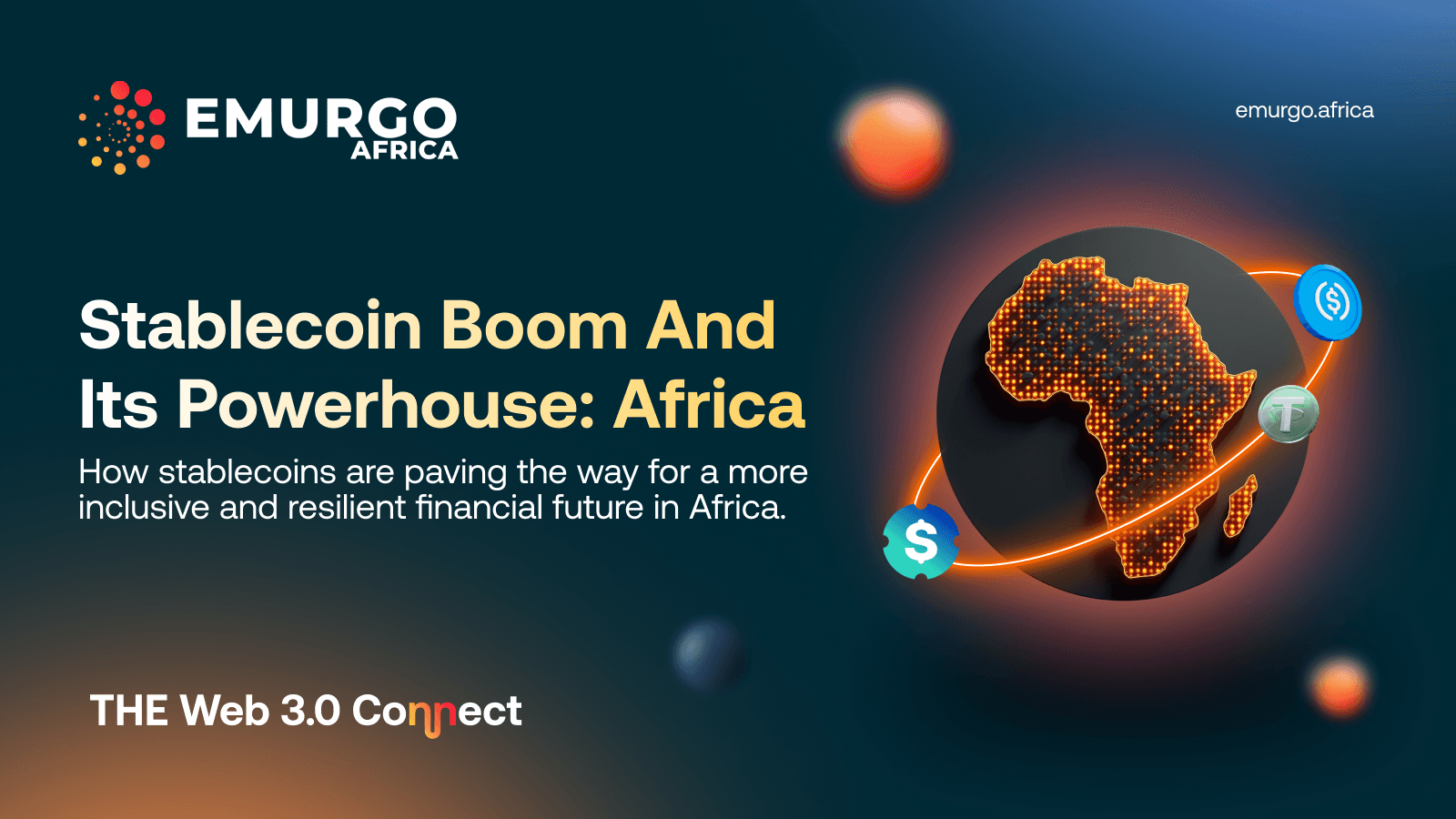🌍 Thank you for visiting our blog post! 🚀
In this blog post, we'll dive into the digital ID initiatives in Benin, Ethiopia, Ghana, Kenya, Malawi, Mozambique, Nigeria and Uganda, their progress and challenges to overcome for the successful digital transformation journey ⛵🌊
Blog posts related to this post:
・Download Full Report: Effect of Digital ID and Role of Decentralized ID (DID) in Africa
・The Worldcoin wave in Africa
・Effect of Digital ID Implementation
Hope you enjoy reading the articles 😌🥑
Governments in Africa play vital roles in spearheading the expansion of digital ID adoption across the continent with the support from international initiatives such as World Bank’s Identification for Development Initiative (ID4D). They take charge of extensive ID registration, ensuring that citizens can readily access official digital identities. While we've seen notable progress in this regard, there's still work to be done, especially when it comes to establishing a comprehensive legal and institutional framework for digital ID, including robust data protection measures.
Figure 1. Unregistered Population in % of Country Population, 2018

Source: Identification for Development (ID4D) Global Dataset | World Bank
You can read below according to your interests for the initiatives in each country. 👇🏾😄
Table of Contents:
1. Benin

In 2019, the Benin government has prioritized improving digital ID access and introduced biometric cards through the RAVIP (Recensement Administratif à Vocation d’Identification de la Population) campaign1. The eID system has 4 phases: (1)preparation, (2)database building, (3)data updates, and (4)monetization. The RAVIP focused on phases (1)-(3)2. By the end of 2019, around 350,000 biometric ID cards were procured for distribution to underserved areas3.
In 2020, Benin joined the World Bank's West Africa Unique Identification for Regional Integration and Inclusion (WURI) program4, which aims to connect civil registration with human development and financial services, ultimately achieving Phase (4) of the eID system5. In March 2020, they introduced a standard platform for over 300 e-services that uses citizens' personal identification numbers for authentication6.
At the same time, in 2019, the Smart Africa Digital Identity initiative began as part of the broader Smart Africa Initiative launched in 2013 to provide digital IDs to previously excluded people across Africa and create a single digital market7. The initiative introduced a continental concept called Smart Africa Trust Alliance (SATA) for digital identity7.
Benin, along with Rwanda and Tunisia, was selected in mid-2020 to host a pilot for the SATA digital ID project1. The project includes applications like cross-border mobile money, remittances, handicraft sales, and health insurance and/or test certificates for travelers6.
References:
(1) ”Reimagining identity ecosystems in Sub-Saharan Africa with mobile The case of Benin, Ghana, Kenya and Uganda” by GMSA
(2) ”The Benen Recipe and Challenges for Electronic and Biometric Identification Data Capture” by Agence pour le Développement du Numérique (ADN)
(3) Digital ID in Africa this week: biometric bank cards, birth registration doubles and ePassport problems | Biometric Update
(4) Togo, Benin, Burkina Faso and Niger Join West Africa Regional Identification Program to Help Millions of People Access Services | World Bank
(5) West Africa - Unique Identification for Regional Integration and Inclusion - Phase 2 | World Bank
(6) ”BLUEPRINT-SMART-AFRICA-ALLIANCE-–-DIGITAL-IDENTITY” by Smart Africa
(7) Smart Africa to hire Project Manager for Digital Identity initiative | Biometric Update
2. Ethiopia

In 2022, National Identity Programme (NDIP) initiated the enrollment process for the Fayda ID, a digital identification system in Ethiopia. NDIP was preparing to issue over 10 million digital IDs to citizens in the 2022/2023 fiscal year1. By August 2022, they completed a use-case pilot phase of their project, enrolling over 100,000 people, and started focusing on scaling up operations1. By October 2023, over 1.4 million Ethiopians had registered for the Fayda ID2.
Before Fayda, Ethiopia had a paper-based ID system where the foundational ID was issued by local administrative units called Kebeles3. Over 16,400 Kebeles provided this ID after confirming a person's residence in that area. The Kebele ID mainly shows where someone lives and is widely accepted, with around 90% to 95% of adults using it2. People often use this card alongside other IDs like driver's licenses and passports to prove their identity3.
Figure 2. Kebele ID as Foundational ID and Associated Functional IDs in Ethiopia

Source: ID4D Country Diagnostic Ethiopia” by World Bank
Starting in July 2023, Ethiopia made Fayda ID, mandatory for financial transactions, promoting financial inclusion and improving security4. Additionally, Fayda ID is being integrated into healthcare for patient registry and health records5. It's also the official student ID in educational institutions, streamlining administrative processes6. Pilot projects have already registered post-secondary students. The release states that “around 640,000 students’ biometric data was migrated into the National ID Program’s system for Fayda ID generation”6.
Furthermore, Fayda will become the primary ID for civil servants, enhancing transparency and efficiency while curbing corruption7. Ethiopia aims to issue 75 million digital IDs by 20251.
References:
(1) Ethiopia plans upgrades to meet 10M digital IDs target by 2023, draft law approved | Biometric Update
(2) Ethiopia's Digital ID Rollout | Abren
(3) ”ID4D Country Diagnostic Ethiopia” by World Bank
(4) Ethiopia to make digital ID obligatory for banking operations | Biometric Update
(5) Ethiopian government agencies partner on digital ID for health sector | Biometric Update
(6) Ethiopia rolls out student IDs, integrates biometric data to issue Fayda | Biometric Update
(7) Ethiopia makes Fayda the main credential for civil servants | Biometric Update
3. Ghana

Until 2017, Ghana had six separate biometric databases, including national ID, health insurance, passports, driver's licenses, immigration, and voter rolls1. In 2017, the government started a project to centralize these databases by overhauling the Ghana Card.
The new Ghana Card aims to enhance the credibility of private borrowers and reduce interest rates, with potential use as a primary registration document and a central data repository for personal credentials2. It may become mandatory for government and private services like passport applications, bank account openings, property registration, and education certificates2.
In August 2023, all babies born in Ghana started receiving a Ghana Card number for life and a Birth Certificate Identification number3. The Ghana Card is increasingly being used as the single proof of ID among Ghanaians, although the problem of uncollected cards remains rife4. There has also been a move by the Ghana Election Commission to make it the sole ID for voter registration5.
References:
(1) ”Identity management and citizen scoring in Ghana Rwanda Tunisia Uganda Zimbabwe and China” by AlgorithmWatch
(2) ”Reimagining identity ecosystems in Sub-Saharan Africa with mobile The case of Benin, Ghana, Kenya and Uganda” by GSMA
(3) Ghana to begin issuing digital IDs to newborns from August | Biometric Update
(4) National ID cards launched in DRC, remain uncollected in Ghana | Biometric Update
(5) EC presses on with plan to make Ghana Card lone ID for voter registration | Biometric Update
4. Kenya

In early 2019, Kenya began registering people for the National Integrated Identity Management System (NIIMS) or Huduma Namba. The project's goal was to create a single digital ID for easier access to public services1. As of May 2019, nearly 31 million Kenyans had already had their fingerprints scanned for this new biometric system2. In May 2019, the World Bank approved $750 million to support Kenya's inclusive growth reforms, including the digital ID strategy, with the goal of improving government service delivery3.
However, challenges such as travel distances, poor network coverage, and legal concerns emerged. To address data protection issues, the Data Protection Act was passed in late 20193. In January 2020, the High Court ruled in favor of NIIMS but called for a regulatory framework for data collection3.
Figure 3. Huduma Card in Kenya

Source: Tweet on X
In August 2023, Kenya partnered with the United Nations Development Program (UNDP) to create an advanced digital identity system with iris, facial, and fingerprint biometrics, designed to improve access to online services, comply with international travel standards, and drive development4. This system comprises four parts: Maisha Namba (a unique personal number), Maisha Card (a third-gen ID), Digital ID (for online authentication), and the National Master Population Register (combining existing data)4.
While planning to unveil it in early October, the Principal Secretary for Immigration and Citizen Services, Julius Bitok, announced that unforeseen issues led to a postponement in October 20235. Public engagement and stakeholder discussions continue, building on lessons from the Huduma Namba project5.
References:
(1) Govt Spokesman urges Huduma Namba registration ahead of deadline | Capital News
(2) Huduma Namba for all: 31 Million Kenyans reported to have been registered so far | KTN News
(3) ”Reimagining identity ecosystems in Sub-Saharan Africa with mobile The case of Benin, Ghana, Kenya and Uganda” by GSMA
(4) Kenya to partner with UNDP in creation of digital ID | Citizen Digital
(5) Kenya delays new digital ID launch due to ‘unfavorable circumstances’ | Biometric Update
5. Malawi

In May 2017, the Malawi government, with support from UNDP, UK Aid, Irish Aid, USAID, the European Union, and the Government of Norway, aimed to provide legal identification to over 9 million citizens for them to access their rights. By November 2017, all 9 million citizens received national IDs or passports, achieving a 100% coverage1. A 2018 census revealed that nearly 97% of rural adults had legal identification1.
In October 2022, the government pushed to register 8.4 million children below the age of 16 by the end of 20232. During the pilot phase, which was completed in November 2022, in various regions, over 600,000 children below the age of 16 were registered3. The National Registration Bureau (NRB) in Malawi rolled out the second phase of mass child registration between April and May 20233. This registration exercise is expected to promote child protection issues in the country.
In July 2023, UNDP and the Government of Malawi started collaborating on a project for inclusive digital transformation, which leverages UNDP's national expertise and the forthcoming digital ID system to drive social change at scale4. It has 3 core areas: Inclusive Digital Infrastructure, Strengthening Digital Governance, and Bridging the Digital Divide4. The ultimate goal is to stimulate innovation, create jobs, and promote social inclusion through a more inclusive and equitable digital economy4.
References:
(1) Malawi’s foundational legal identity system sets the stage for a more efficient and responsible digital future | UNDP
(2) As Malawi issues IDs for children, privacy concerns rise | Reuters
(3) Mass Child Registration Second Phase to Commence April- NRB | Zodiak Malawi
(4) Digital Transformation for Sustainable Development: UNDP Validates Initiative to Promote Inclusive Digital Transformation in Malawi | UNDP
6. Mozambique

Mozambique is working towards establishing a foundational digital identity system, although it lacks comprehensive legislation for personal data protection1. In 2010, the Unique Citizen Identification Number (NUIC) was introduced. Key institutions like National e-Government Institute (INAGE), National ICT Institute (INTIC), Directorate of Civil Identity (DIC), and National Immigration Service (SENAMI) are involved in different aspects of the digital ID system1.
In 2018, the Electronic System for Civil Registration and Vital Statistics (e-SIRCEV) was established and launched in 2019. It focuses on collecting vital data like births, marriages, divorces, and deaths, aiming to establish a comprehensive database enabling efficient data collection for statistical purposes and seamless integration with other government systems by assigning NUIC at birth1. By 2021, it had been implemented in 121 out of 164 registries1.
In 2021, the World Bank granted approval for a $150 million fund from the International Development Association (IDA) to support Mozambique's Digital Governance and Economy Project (EDGE)2. In 2022, civil registration and ID card issuance campaign supported by World Bank’s ID4D provided legal identity to around 21,000 Internally Displaced Persons (IDPs)3. ID cards and birth certificates were issued simultaneously and enabled IDPs to access formal employment, training, education, and healthcare3.
References:
(1) ”Digital Identity in Mozambique” by Research ICT Africa
(2) World Bank Supports Mozambique’s Efforts towards Access to Identification and Digital Transformation | World Bank
(3) World Bank is helping the displaced in Mozambique get IDs, birth certificates | Biometric Update

Photo: Dhow, Inhambane, Mozambique by Pixabay by Canva
7. Nigeria

In 2007, Nigeria established the National Identity Management Commission (NIMC) to manage the National Identity Database, issue Unique National Identification Numbers (NINs), and General Multi-Purpose Cards (GMPCs) for citizens and legal residents1. The goal was to create a unified national identification system for government purposes.
NIMC faced challenges, including a scandal with MasterCard in 2014, leading to legal actions in 20192. By 2017, 10 years after NIMC's creation, only 20 million Nigerians (about 10% of the population) were in the digital identity database3. In 2019, the Commission claimed that it needed 10,000 registration centers but only had 1,0003.
The current NIMC effort, supported by the World Bank in 2020 through the ID4D initiative, aims to integrate various ID systems, promote gender inclusion, and strengthen the legal framework4. Despite existing data collected by multiple agencies, the new system involves mandatory registration at designated centers, assigning NIN5. An eID card linked to the NIN is issued for various applications like payments, security, e-SIM, and more5.

Photo: Students in Nigeria by Pexel by Canva
In 2020, NIMC released a mobile app for generating NIN, but it was insecure and raised privacy and security concerns2. The lack of high-level technology impact assessment poses risks to citizens' privacy and rights2. By September 2022, Nigeria has registered nearly 90 million citizens for NIN, with plans to enroll 148 million by 20246. They faced capacity challenges but have been partnering with traditional institutions to reach rural areas6.
References:
(1) National Identity Management Commission Website
(2) Eke, Damian, et al. "Nigeria’s Digital Identification (ID) Management Program: Ethical, Legal and Socio-Cultural concerns." Journal of Responsible Technology 11 (2022): 100039
(3) Ecosystem Approach to Digital Identification Enrolment in Nigeria | CIPESA
(4) Development Projects : Nigeria Digital Identification for Development Project | World Bank
(5) ”NIGERIA DIGITAL IDENTIFICATION FOR DEVELOPMENT (ID4D) PROJECT SHEET” by World Bank
(6) Nigeria reaches 90M digital ID registrations as database capacity issue looms | Biometric Update
8. Uganda

In 2014, Uganda launched the national ID program under the National Security Information System (NSIS) project, which later became a permanent foundational digital ID system1. The Registration of Persons Act (ROPA) of 2015 established the National Identification and Registration Authority (NIRA) responsible for civil registration and national IDs1. In 2017, the National Identity Number (NIN) started to be used across institutions2.
To improve efficiency and boost birth registration, NIRA has opened offices and mobile units across Uganda, partially funded by the World Bank’s Reproductive Maternal and Child Health Services Improvement Project (URMCHP)3. The "My Country, My Identity" campaign in 2014-2016 registered millions of voters and residents for National Identity Cards3. However, it was reported that at least 2.4 million Ugandans (about 6% of the population) aged 16 and above had not enrolled for national identity cards until 20194.
In 2019, NIRA issued free national ID cards to all citizens. Additionally, Uganda's government is verifying the identities of refugees through biometrics with support from UNHCR5 and the World Food Programme (WFP) to enhance humanitarian efforts.
In September 2022, NIRA launched a campaign to add 17 million more citizens to the national ID system6. NIRA plans to organize a mass enrollment exercise for 17.2 million unregistered Ugandans6. However, there are concerns about the challenges of exclusionary digital ID systems raised by some private sector and civil society groups7.
References:
(1) ”Digital Identity in Uganda” by Research ICT Africa
(2) ”Identity management and citizen scoring in Ghana Rwanda Tunisia Uganda Zimbabwe and China” by AlgorithmWatch
(3) ”Reimagining identity ecosystems in Sub-Saharan Africa with mobile The case of Benin, Ghana, Kenya and Uganda” by GSMA
(4) 2.4 million Ugandans don’t have national IDs | Monitor
(5) Uganda starts biometric verification of refugees | UNHCR
(6) Ugandan officials emphasize inclusive digital ID plan to enroll 17M unregistered citizens | Biometric Update
(7) Civil society coalition sues Ugandan government, alleging digital ID exclusion | Biometric Update

Photo: Chimpanzee in Uganda by Pixabay by Canva
Thank you very much for reading this post🔮
For downloading the full report, visit this page.
Follow EMURGO Africa for more information

EMURGO Africa invests and supports local Web3 projects in the region to adopt Cardano’s decentralized blockchain technology to build socially impactful solutions.
As a regional entity of EMURGO, the official commercial arm of Cardano, EMURGO Africa also runs a local Cardano accelerator in Africa, Adaverse, which accepts applications year-round.
For more up-to-date information on EMURGO Africa, follow the official channels listed below.
About EMURGO Africa
- Official Website: emurgo.africa
- Twitter: @EmurgoAfrica
- Telegram: https://t.me/emurgoafrica



